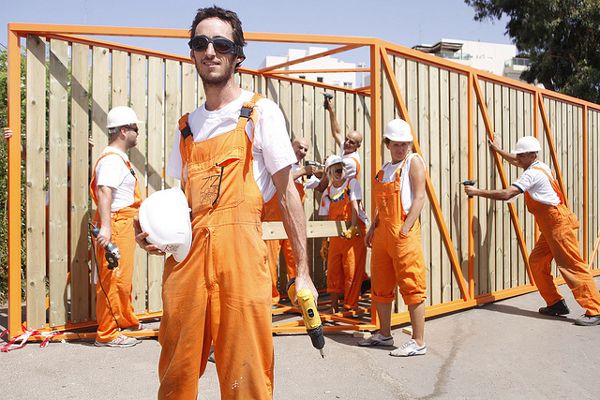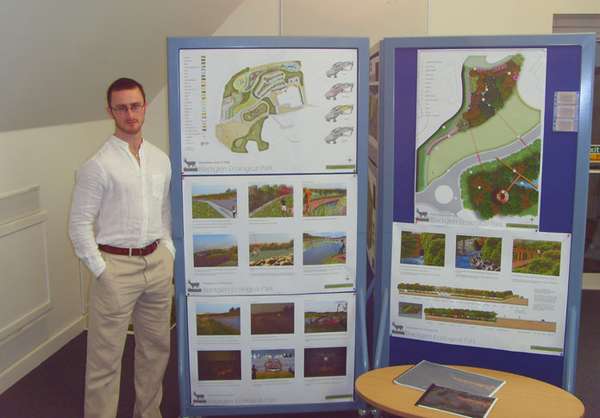We look at some of the common misconceptions students tend to hold, which turn out to be complete rubbish. Student days, aren’t they the best time of our youth? Full of new emotions, new happenings, and new experiences aren’t those years exciting and full of expectations; wild but educative simultaneously? Although we usually don’t realize it at the time, the period of our studies is one of the most momentous stages of life within which our personality, character, and attitude take shape. That shape is far from simple and explicit when we graduate, but its base is already deeply engraved. If that basic shape is bad, it will be almost impossible to transform or delete it. If it’s good, on the other hand, it can be improved and cleared up with ease and willingness. However, the four or five years at a university are varied enough for students to go through different phases. And though they last long enough to give you time to decide what you wish to do with your life, these years can also pass you by before you can say “I want to become a landscape architect.” So what are the things landscape architecture students believe in? And why are so many of them deceitful? What should you bear in mind that can help you make the most of your studentship? See the naked truth in the following lines. The 4 Deadly Sins Landscape Architecture Students Commit To assimilate the information readily, we will group twelve venial beliefs into four sections; Pride, Sloth, Gluttony, and Wrath. Each segment will display the relationship between the sin and the misbelief. PRIDE

Staring at a blank sheet won’t help. Photo licensed under CC0
As a creative discipline requiring the uninterrupted generation of original ideas, landscape architecture lays its first trap for students. “It is true that behind each great project lies an even greater concept, but it is also true that a project takes as much time as you give it. Don’t ever forget that landscape architecture isn’t only about ideas, no matter how marvelous yours are. And don’t let your pride prevail; you can always utilize your time by doing some technical work. Such no-muse days really do exist, but they don’t have to turn into routine excuses for indolence. Inspiration won’t come until you start searching for it – that same moment you actually start working on your project! The sooner you understand the veracity of the previous sentence, the less stressful situations you will meet in your future work. In the article “
5 Common Mistakes You Should Avoid When Starting a Project” Eleni Tsirintani’s professionalism reveals helpful techniques to help beat early project missteps.
2. “I won’t listen to my lecturers. They don’t understand my concepts.” The second delusion originating from students’ pride is the disregard of teachers’ directions. We’ve all been there. The lecturer says in front of all your fellows that your idea sucks and there’s no one in the world you hate as much as him/her at that moment. But for good or bad, such cases are vital for your progress. No one claims you have to agree with everything the academics think, yet you need to be open to criticism. Have individuality and defend your opinion, but listen to what the more experienced say about your work as well. If you reckon that teachers can’t get your ideas, try to present your project in a way they’ll understand. And don’t fall for the other extreme, either; professors’ opinions are not set in stone or indisputable.
Observe, analyze and discuss – in that order!
An excellent list of tips for developing the student-professor relationship is comprised in this article by Yuliya Georgieva, “
9 Ways to Milk Your Professors for Everything They’re Worth!”
3. “I won’t work harder than my fellows. Why should I?” The third false belief may sound familiar to almost every landscape architecture student. It refers to the point at which you begin to wonder if there is a reason for you to push harder than the others. Subconsciously or not, people always tend to follow the average level. The problem here occurs when the majority of your student-fellows are below the standard. You can’t be responsible for all your classmates, but you have to be responsible for your own improvement.
So why should you work harder than the rest when you will pass the year one way or another? Think about the possible benefits that extra work can bring to you. You will learn to set your bar higher alone, even before you graduate. Your efforts won’t go unseen. It may take time before you get attention, but the results will pay off later. Last but not least, you will awaken to who your real friends are in the university. Those who will support you will be few, but at least you will be aware of who you can trust for your future projects and career path.
You can draw more advice on how to be a successful landscape architecture student from Ashely Penn’s terrific article exploring “
5 Common Habits of Successful Landscape Architecture Students”
4. “I don’t want to participate in student competitions. I don’t have time!” The last false understanding coming from students’ vanity is represented by an unwillingness to take part in student contests. The most common excuse for not being active outside the university is related to the bad time management skills of most students. College is an immense source of knowledge, but it often puts you in cotton wool, sheltering you too much from external influences. Student competitions, workshops, and all kinds of extracurricular activities widen your views in a priceless way. Joining such initiatives helps you see how the land lies, as you’re put in an entirely new and different context. Networking, creating a team, or just learning what weaknesses and strengths you have are amongst the profits you gain after undertaking such a step. So don’t get fooled by your pride. You can be an awesome landscape architecture student, or perhaps the next
Burle Marx (why not?), but no one will know that until you sit, work, and present your ideas.
For more useful lines about the opportunities beyond the university read Paul McAtomney article “
7 Things You Must Know to Succeed as a Student That Your Lecturer Can’t Teach You!”
SLOTH The second deadly sin, sloth, concerns the stages of apathy, lack of interest and negligence we’re often faced with through the years of our studies.
5. “I’ll start meeting deadlines when I begin to work. It’s not that crucial now.” This misbelief is dreadfully widespread among students. Missing deadlines is perhaps the biggest mistake we make in college. Postponing building the habit of finishing your projects on time can only make things worse in future. The sooner you learn to manage your time, the better designer you’ll become. Organization and prioritizing are not talents which we were born with. They have to be developed and maintained. Studentship is the perfect opportunity for creating and stabilizing that way of working, so don’t miss it!
If you are interested in discovering why being well-organized means everything, take a look at that article by Elisa Garcia, “
Bad Landscape Architecture Students, Can They Improve?”
6. “I don’t have to visit classes regularly. Only nerds do that.” We’re moving on to the issue of attending lectures regularly and absorbing knowledge directly from the source, and learning to bear proudly the title:
“nerd of the course”.
The truth is that you shouldn’t care too much about other people’s thoughts. Chances are, whoever you meet after graduation, he/she will say that they regret not going to classes when they had the chance. The opportunity of direct contact with lecturers and colleagues is invaluable – no one will quote exactly what the teacher said, and no one will perceive a lesson the same way you did. So don’t make excuses just to comfort yourself. Fight prejudices, and fight laziness if you have to. Embrace your opportunities. How else will you become the best professional? How can you become a top landscape architecture student? Find out in Nick Shannon’s article “
10 Tips to Help You Be a Top Landscape Architecture Student”
7. “I can always learn what I missed from school later.” Our sloth-inspired misbeliefs continue with students’ arguments on catching up with the lessons they failed to study. You must never rely on that whim if you strive for a reputable name. It’s clear that some subjects will be easier than others, but that doesn’t mean you can catch up on everything when you become a professional. You can’t make up for five years, after all. Give the best of yourself now, as a student, to save from embarrassing situations later as a working landscape architect.
Other mistakes students make, and the clues to avoid them, are revealed in the article on “
10 Mistakes Every Landscape Architecture Student Makes and How to Avoid Them” by Cameron R. Rodman
8. “Education isn’t as important as work experience.” As we search the depths of students’ thoughts, it gets clearer that most of their delusions are just another form of excuses. The next wrong understanding pretends that university education isn’t as valuable as the work experience after it. But wait a minute, aren’t both equally substantial? What happened to theory and practice, or is it practice that matters only? If education wasn’t necessary, we wouldn’t have to go to universities at all. Moreover, we’re not only talking about knowledge here. Five years at university teach you how to comprehend, how to listen, how to talk to erudite personalities, when to talk, and when to be silent. Five years at university can teach you how to behave according to the business etiquette, how to act like a professional, and how attitude is everything. You could learn all those things before you start working, not after.
Ten easy steps to help you craft your image among colleagues are described in Cameron R. Rodman’s article “
10 Easy Ways for Landscape Architecture Students to Network with Professionals”
GLUTTONY We are switching now to one more deadly sin landscape architecture students meet; gluttony. How is it represented, you wonder? Think about the exaggerated, enormous amounts of enthusiasm you had in your first year in college. Did we answer your question?
9. “I’m a freshman, but I’m already ahead of schedule! And it even gets easier in the following semesters…” Maybe there are successful examples of students who have managed to keep a steady pace through all the years of studying. Unfortunately, when you are overenthusiastic in the beginning, you burn out very fast. And truth be told, it doesn’t get easier in time; it’s quite the opposite. So if you push it too hard right from the start, it turns out that you wasted all your power on the more general subjects in the first years, and you feel tired and spiritless later when the most exciting, narrowly specialized disciplines come. Of course, the best option is to estimate and distribute your energy uniformly with an accent on the final year. Whatever you choose, make sure you handle the situation instead of it handling you.
Explore what things you should keep in mind if you want to study landscape architecture in the article by Dalia Zein, “
10 Things You Must Know If You Want to Study Landscape Architecture”
10. “I’ll start thinking and living for landscape architecture. Nothing else concerns me.” One more shape of gluttony appears in the ultimate grasping; that in order to become good at landscape architecture, one has to forget about everything else. This is insanely wrong! Running into any extreme is never a good idea. We shouldn’t forget that students are often 19- to 25-year-old people who need to have fun, take rests and do their own hobbies. It’s hard to find the balance between being a top student and having a normal social life and relationships, but once you get it, you will see how both things synchronize and improve each other.
Remember that everything that is not landscape architecture still inspires landscape architecture; whether it be love, nature, a book, a travel experience or a song… so don’t deprive yourself of being a complete person. To learn why monotony is your enemy and how to avoid eight more productivity killers, read the article “
9 Productivity Killers in the Studio and How to Avoid Them” by Ashley Penn.
WRATH The last deadly sin encountered by students is wrath. It covers two fallacies, disguised in a rebellious behavior often accompanied by self-pity.
11. “I don’t want to be a landscape architect. I just want to graduate.” Is there anyone who can explain such reasoning? Why would you waste your time, your money (or your parents’ money), and your endeavors for a subject you don’t have a desire to develop in? Think of the professors who are sharing their time with you. They would scarcely feel motivated to tutor a person who shows no ambition himself. The best action you can take in such a case is to drop out of university and find what really amazes you. If you’re hesitating about that decision, maybe there is a problem somewhere else. In either case stop, think, and decide. Life is right before you, so don’t waste it studying a matter which isn’t your passion. In this article, Erin Tharp posts a list of reasons that students drop out of college. Read it
here.
12. “I will never be as good as him/her.” The final misbelief was saved for the end with a set purpose. The most sinful thought a student can hold is doubt in themselves. Not believing in yourself is the source of all your problems. The lack of faith can stultify everything. You should compare your projects with others, but you shouldn’t try to imitate or strive to design like somebody else. If your fellow student is good at renderings and you are good at planting design, that’s perfectly normal. Don’t run after someone else; concentrate on yourself. You possess unique skills and unique potential. So set your bar according to you, not according to someone else. In this way, the only person you’ll compete with will be your better self. Grab some more inspiring words on the road to success in landscape architecture from this interview with one of the most successful Bulgarian landscape architects,
Veselin Rangelov – With those lines, we end our journey of right and wrong beliefs. Yet, who are we to say what’s right or wrong? Which points do you agree with and which made you wrinkle?
Feel free to comment below. We’re expecting your opinion! Go to comments Recommended Reading:
Article by Velislava Valcheva Return to Homepage
Published in Blog




















